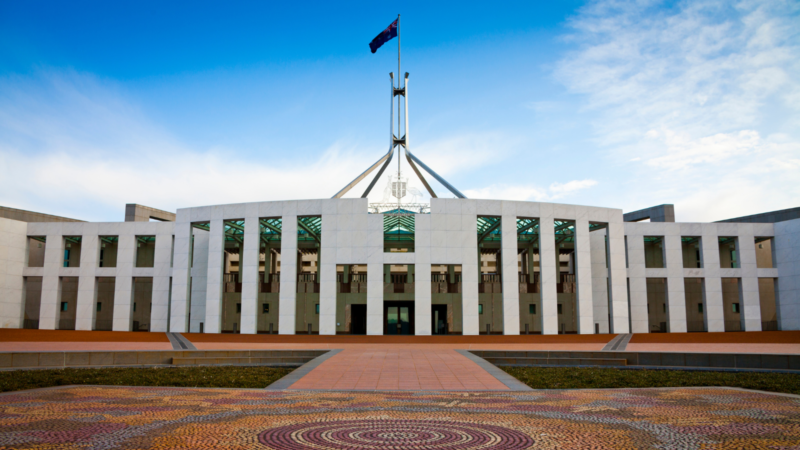An overhaul to Australia’s immigration system and permanent residency pathways needs to happen in the next 12 months, otherwise Australia risks a major employment crisis.
While the new Labor government has promised significant change, from health to aged care and education, immigration has been largely omitted in pre- and post-election promises and policies so far – and begs the question, why is it a neglected topic when organisations around the country are desperate for more people to fill the post-pandemic skills shortages?
The new Australian Government now comprises more independent, women, migrant-background and indigenous representatives – paving the way for a new style of leadership to emerge with a focus on compassion, fairness, diversity and hope. We also have a new Minister for Immigration, Citizenship & Multicultural Affairs in Andrew Giles MP.
Mr Giles is a former employment and immigration lawyer, with a background in immigration and humanitarian cases. He is known for his compassionate stance towards refugees and represented 433 asylum seekers trying to get to Australian territory aboard the Norwegian freighter MV Tampa In 2001.
Since his appointment, Mr Giles has not given any specific indication of how he will take on his new role and what’s in store for Australia’s immigration programs.
In this blog, The Migration Agency’s Managing Director and immigration thought leader, Sarah Thapa, analyses the 2022 election outcomes and what it means for the world of immigration and global talent.
Why immigration should be at the top of the priority list
Immigration policy announcements are not generally a populist topic for politicians, Sarah says, however, it’s important that our new government takes the talent crunch seriously, overhauls our immigration system and helps industries and organisations desperate for skilled workers.
It is well-established that the driving force for growth and prosperity in Australia comes down to the three Ps.
- Participation (workers per population)
- Productivity (GRP per worker)
- Population
Population growth will be a critical element of Australia’s economy in the future. We need people to contribute to the economy for the country to prosper – it’s that simple.
Before Covid, Australia’s population growth was driven by overseas migration, which increased significantly in the last five years due to people on temporary visas, including overseas students, working holiday makers and skilled workers.
Highly skilled global talents help grow our economy by filling employment needs, purchasing goods and services, and paying taxes.
And the health, aged care and tech industries are crying out for skilled talent right now.
In his address after winning the 2022 federal election, Prime Minister Anthony Albanese stated a “better future for our country calling for a better Australia”.
A “better Australia” includes a competitive global talent attraction strategy to fill the skills gaps and create thriving health and aged-care sectors, while also bringing innovation, tech and diversity to our country.
Labor has said in the past it will invest in aged care and health. However, if we are going to provide quality of life for the elderly, so they can age with dignity, we need the people and skilled workers to provide those services.
Albanese has pledged to “strengthen universal healthcare through Medicare” and again for the healthcare sector to thrive we need skilled workers. At present, Australia has a massive skills shortage in both of these areas, a sustainable workforce for Australia will require that the domestic talent market be supplemented with international talent.
While the new Labor government has committed to developing skills by announcing 20,000 university places with a focus on areas where there are currently skills shortages, it is equally important to supplement the workforce with highly skilled migrant talent to impart their skills into Australian organisations in order to address shortages in key areas in the short and medium term.

The 2022 federal election and immigration at a glance
The key goals of Labor’s skilled immigration policy are articulated in the November 2021 ALP National Platform and include:
- Meeting skills shortages
- Protecting local employment opportunities and working conditions
- Preventing exploitation of temporary workers, particularly international students and working holiday makers
Unfortunately, there has been no mention of a strategic migration policy to fill current skills shortages at the levels needed, with only small announcements being made prior to the election and nothing significant to date since.
Here’s a roundup of what we might expect when it comes to immigration with the Labour government following the federal election and what it means for you.
New agricultural stream to help farmers and migrants
Labor is planning to ease Australia’s agricultural worker shortages by reforming the Pacific Australia Labour Mobility (PALM) Scheme’s Seasonal Worker Program.
The Guardian reports that Labor has stated it plans to establish a dedicated agriculture visa stream under the Pacific Australia Labour Mobility Scheme, “creating a robust and sustainable four-year visa, with portability, strong oversight mechanisms, and protections and rights for workers”. It will also meet the upfront travel costs for Pacific workers rather than the costs being met by Australian farmers.
The news article also mentions that Labor will focus on compliance, and offer a visa amnesty to migrant workers who end up in exploitative situations and report the abuse to the Fair Work Ombudsman – and this is great news.
Spokesperson for international development and the Pacific, Pat Conroy, said it would include “putting a firewall between the Department of Home Affairs and the Fair Work Ombudsman” so that temporary migrant workers would not risk their visa by calling attention to abuses. (Source: The Guardian)
Temporary Protection Visa holders may be granted permanent residency
Temporary Protection Visa (TPV) holders may be granted permanent residency considering they are already in the country paying tax. A TPV can be held for up to three years and visa holders can work and access Medicare.
Labor’s stance on Temporary Protection Visa (TPV) holders shows a more compassionate approach to those who are found to have genuine refugee claims and are granted humanitarian visas. Traditionally, humanitarian visa holders are not afforded permanent residency. This means denying them the certainty of permanent protection from persecution in their home country and preventing them from reuniting with separated family members.
Family, skilled and business migration streams review
Simplifying the work visa program and reducing skilled occupation lists to one list has also been discussed and a review of the family, skilled and business migration streams to prioritise family reunion and meet skills shortages may be on the cards, however, nothing has been set in stone in regards to a policy announcement. Labor has indicated support for ensuring pathways to permanency for temporary skilled migrants and New Zealand citizens living permanently in Australia.
Refugee and humanitarian migration reforms
New immigration policies may also address increasing humanitarian migration, reforming immigration detention and specific measures for migration from the Pacific.
The new government has not commented on whether it would increase the number of humanitarian visas offered a year, but has, in the past, supported more places for refugees from Afghanistan, Ukraine and Syria.
We can expect a more humane approach with Labor as we saw with the well-known Sri Lankan family from Biloela being released from immigration detention following the election, to allow them to live in the community while their humanitarian application is being processed.
Deportation for convicted visa holders
Under Australia’s existing laws, and section 501 of the Migration Act, visa holders who are convicted of crimes will be deported. The Labor government would continue deportations under section 501 of the Migration Act as currently in force, but would be likely to adjust the ministerial direction to ensure decisions better take into account the time a person has been in Australia.
If you need immigration and global talent support, please get in touch with our highly skilled people at The Migration Agency.


